- Home
- Sue Townsend
Queen Camilla
Queen Camilla Read online
PENGUIN BOOKS
QUEEN CAMILLA
Sue Townsend is one of Britain’s bestselling authors. Her hugely successful novels include seven Adrian Mole books, The Queen & I and Number Ten. She is also a well-known playwright. She lives in Leicester.
By the same author
NOVELS
The Secret Diary of Adrian Mole Aged 13¾
The Growing Pains of Adrian Mole
Rebuilding Coventry
True Confessions of Adrian Albert Mole,
Margaret Hilda Roberts and Susan Lilian Townsend
Adrian Mole: From Minor to Major
The Queen and I
Adrian Mole: The Wilderness Years
Ghost Children
Adrian Mole: The Cappuccino Years
Public Confessions of a Middle-aged Woman Aged 55¾
Number Ten
Adrian Mole and the Weapons of Mass Destruction
PLAYS
Womberang
The Ghost of Daniel Lambert
Dayroom
Captain Christmas and the Evil Adults
Bazaar and Rummage
The Great Celestial Cow
Disneyland It Ain’t
The Queen and I
SCREENPLAYS
The Secret Diary of Adrian Mole
The Growing Pains of Adrian Mole
The Refuge
Adios
Queen Camilla
SUE TOWNSEND
PENGUIN BOOKS
PENGUIN BOOKS
Published by the Penguin Group
Penguin Books Ltd, 80 Strand, London WC2R 0RL, England
Penguin Group (USA) Inc., 375 Hudson Street, New York, New York 10014, USA
Penguin Group (Canada), 90 Eglinton Avenue East, Suite 700, Toronto, Ontario, Canada M4P 2Y3
(a division of Pearson Penguin Canada Inc.)
Penguin Ireland, 25 St Stephen’s Green, Dublin 2, Ireland
(a division of Penguin Books Ltd)
Penguin Group (Australia), 250 Camberwell Road, Camberwell, Victoria 3124, Australia
(a division of Pearson Australia Group Pty Ltd)
Penguin Books India Pvt Ltd, 11 Community Centre, Panchsheel Park, New Delhi – 110 017, India
Penguin Group (NZ), 67 Apollo Drive, Mairangi Bay, Auckland 1310, New Zealand
(a division of Pearson New Zealand Ltd)
Penguin Books (South Africa) (Pty) Ltd, 24 Sturdee Avenue, Rosebank, Johannesburg 2196, South Africa
Penguin Books Ltd, Registered Offices: 80 Strand, London WC2R 0RL, England
www.penguin.com
First published by Michael Joseph 2006
Published in Penguin Books 2007
1
Copyright © Sue Townsend, 2006
All rights reserved
The moral right of the author has been asserted
EISBN: 978–0–141–90083–4
To Colin Broadway, with my love
And also
To Brian Hall of Parliament Square
There is no scientific evidence that dogs can understand human speech or that they can communicate with other dogs.
Dog owners who insist that their dogs ‘can understand every word I say’ are misguided.
However, as an old Irish setter said to me recently, ‘Dogs understand human speech only too well and find most of what we have to say to them banal, tedious and patronizing.’
(Camilla to Charles)
‘Darling, do you think a dog knows it’s a dog?’ asked Camilla.
‘It depends what you mean by know,’ said Charles.
Freddie snapped, ‘Of course I know I’m a bloody dog. I eat from a bowl on the floor, I shit in the street…’
‘If you throw live frogs into a pan of boiling water, they will sensibly jump out and save themselves. If you put them in a pan of cold water and gently apply heat until the water boils, they will lie in the pan and boil to death.’
Shami Chakrabarti, Liberty
AUTHOR’S NOTE
Queen Camilla is a work of fiction. Names, characters, places and incidents either are the product of the author’s imagination or are used entirely fictitiously.
Acknowledgements
Without the loving support and practical help of Colin Broadway this book could not have been written.
I thank Louise Moore, my editor, who has more confidence in me than I have in myself.
I also thank the editorial and production teams at Michael Joseph and Penguin, who I took to the wire – again.
I am grateful for the invaluable help of Shân Morley Jones, who read the final manuscript and saved me from several embarrassments.
1
Camilla, the Duchess of Cornwall, stood smoking a cheap cigarette on the back doorstep of Number Sixteen Hell Close. It was a cold afternoon in late summer. Occasionally she turned to watch her husband, Charles, the Prince of Wales, clattering the luncheon pots in the red washing-up bowl he’d bought on impulse that morning from the ‘Everything A Pound’ shop. He had borne the bowl home and presented it to her as though it were a precious religious artefact plundered from a sacked city.
As she watched him scrubbing at a Doulton gravy boat, she thought, how little it takes to make him happy, and said, ‘Happy, darling?’ Her voice was husky from years of cigarette smoking and also from sitting up half the night laughing and talking with the next-door neighbours, Beverley and Vince Threadgold.
Vince, a 55-year-old Elvis lookalike, had entertained Camilla and Charles with his terribly amusing stories about Wormwood Scrubs. Charles had said, ‘Prison sounds rather agreeable compared to Gordonstoun School, where I often woke in the night to find my narrow iron bed and rough blankets covered in a light sprinkling of snow from the open dormitory windows.’
Beverley, a big boned woman with hair the colour and texture of straw, had said, ‘You were bleedin’ lucky to ’ave a blanket. I slept under me dad’s army greatcoat.’
Charles had looked so mournful that the laughter had died down, until Camilla had said, ‘Lighten up, darling, and pour us another glass of your delicious turnip wine.’
After a few more glasses, Charles had recovered his spirits and had slipped into his party piece, an extended Goon routine in which he became Fred and forced Camilla into being Gladys. The Threadgolds watched their guests’ improvised performance with stony faces, and were glad when their royal neighbours had staggered next door to their bed.
Camilla asked, ‘How’s the bowl performing, darling?’
‘The bowl is performing absolutely splendidly,’ said Charles.
‘Clever old you for spotting it.’
‘It was on the pavement with a stack of others. One was dazzled by the choice of colours.’
‘You did well, my darling. Red is terribly jolly.’
‘Yes, that’s what I thought. One hovered over the green.’
‘Mmm, green is good, but terribly worthy and a bit reminiscent of Jonathon Porritt, one imagines he has a green washing-up bowl, bought in some dreadful National Trust shop in the Cotswolds.’ Her laugh quickly turned into a cough.
Had she been any other person Charles would have defended his old friend Jonathon Porritt, the National Trust and the Cotswolds, but Camilla was licensed to say exactly what she thought.
She was still coughing; Charles turned worried eyes on her, ‘Are you all right, darling?’
She nodded that she was.
Somehow, the fact that he had chosen a red washing-up bowl felt significant to him. Perhaps, as Laurens Van der Post had urged, he was finally getting in touch with the ‘pagan inside’. He and the long-dead guru had trekked across the Kalahari and sat by a campfire under a vast star-filled sky and talked of what a man needed in order to feel complete in himself. A man must have a passion
, they had concluded. Charles remembered the crimson ball of the sun as it sank behind the dunes. Perhaps this metaphysical experience had influenced his choice of washing-up bowl.
Camilla asked, ‘How much was your lovely red bowl, darling?’
Charles said a little tetchily, ‘I did say, I bought it from the “Everything A Pound” shop, darling.’ He blushed, remembering the scene when he had asked the morbidly obese shopowner, Mr Anwar, the same question.
Mr Anwar, irritable after a row with his wife about the Kit Kat wrappers she had found under his bed, said in his public school accent, ‘Tell me, sir. What is the name of my shop?’
Charles had taken a step back on the pavement and read aloud the shop sign displayed in foot-high letters. ‘Everything A Pound.’
Mr Anwar had said, ‘You do not need a degree in semiotics to interpret the signage, Mr Saxe-Coburg-Gotha. Everything in my shop costs exactly, precisely, incontrovertibly, a pound. I repeat, a, that is, one pound.’
Charles, stung by Anwar’s sarcasm and his use of his German family name, had handed him a pound coin and hurried out of the shop.
Charles’s dog, Leo, a Frankenstein-like mixture of many canine breeds, sloped out from beneath the kitchen table and stood by the sink whining and lifting his big wolf’s head towards his master. The dog seemed to get taller every day, thought Charles: it was already, at fourteen weeks, up to his knees. Spiggy, Princess Anne’s husband, the ‘breeder’, had assured Charles that Leo would be, ‘One of them ankle-snappers, what’s good for rattin’.’
Leo whined, ‘I’m hungry.’
Charles said, ‘I know you’re ready to eat, Leo, but can’t you see I’m busy?’
The doorbell rang. Charles, still with his hands in the water, said, ‘Answer that, will you, darling?’
Camilla said, ‘I’m smoking, darling.’
Charles replied with a fixed grin, ‘I’m perfectly aware that you’re smoking, darling, since the smoke is drifting into the kitchen and insinuating itself down to my lungs.’
He gave a little cough and flapped a hand dripping in suds at the pall of tobacco smoke hanging over his head.
Camilla said, raising her voice over the persistent ringing of the doorbell, ‘It’s against the law of the land to carry a lit cigarette through a building, including one’s home, so perhaps you will answer the door.’ She turned her head away before adding, ‘Darling.’
Charles threw a little Spode milk jug into the suds and said, through clenched teeth, ‘I have a washing-up system and I need to concentrate. Why can you not grind out that filthy bloody thing you’re sucking on and answer the door? Darling.’
The doorbell rang again.
Camilla said, a little tearfully, ‘Charlie, my fag time is terrifically important to me. You did agree before we married that I could smoke five fags a day and that I would not be disturbed whilst doing so.’
Charles scrubbed furiously at the perfectly clean Spode jug with the washing-up brush and said, ‘We also agreed to share the housework, but you’ve driven a coach and horses through that agreement.’ He saw the hurt on her face and said in a conciliatory tone, ‘You’re terribly lazy, darling.’
Camilla walked away down the crazy-paving path to the hen coop at the bottom of the narrow, heavily cultivated garden. She stared through the chicken wire at the hens, Eccles and Moriarty, who were pecking at each other in the casually cruel manner of siblings squashed together in the back seat of the family car.
Camilla was not fond of the hens. She disliked their wattled necks and Goon names, their cold eyes, sharp beaks and prehensile claws. She resented the time and money that Charles spent on their upkeep. In her opinion they were ungrateful feathered bastards. She was sick of having to coax Charles out of his disproportionate sense of failure every morning after he returned from the coop, with the egg-collecting basket he insisted on using completely empty.
Her own dogs, Freddie and Tosca, who had produced two litters together, ran out of the house on their little Jack Russell legs. They joined their mistress at the hen coop.
She said to the hens, ‘You’re so bloody ungrateful. He simply lavishes attention on you and yet you refuse to give him one measly egg. It’s terribly unfair, we’re desperately poor.’
Camilla took a last drag on her cigarette and distractedly poked the still-burning stub through the chicken wire. Eccles ran forwards, picked up the burning stub in her beak and then, with a flurry of feathers, leapt on to the roof of the hen house. Camilla laughed when Eccles allowed the cigarette to dangle in the manner of an avian Lauren Bacall.
In the kitchen Charles heard her laughter and smiled with relief. Camilla didn’t bear a grudge – unlike his first wife, who had kept a sulk going for… well, years. He hurried down the path, wiping his hands dry on a tea towel. He had been too hard on her; she’d had servants until very recently, whereas he’d been doing for himself for the last thirteen years, while in exile.
Camilla thought, in the few seconds before Charles saw his precious bird apparently enjoying an imported Chinese copy of a Silk Cut Ultra Low after her dinner, this will make a terribly funny anecdote one day, but the immediate repercussions will be ghastly for poor old me. Charles reached out and spun Camilla round to take her in his arms, and then saw with incredulity that Eccles appeared to be smoking a cigarette and that a fox was sitting behind a row of winter cabbages, staring at him with bold insolence.
Freddie and Tosca crept behind the legs of their mistress; Camilla had never seen a fox at such close quarters, at least not a live one. She’d seen plenty of pieces of dead foxes. She thought to herself, he’s terribly beautiful. The fox stood up, gave a lopsided grin then coolly turned his back, strolled to the corner of the garden and disappeared.
Still on the doorstep, though quickly running out of patience, was the Queen. She was suffering from toothache and wondered if Charles had some oil of cloves in his homeopathic medicine box. She had two dogs with her, both Dorgies (a cross between a Corgi and a Dachshund). One was Susan whom she had inherited from her mother, the other Harris, her own dog, was the son of Harris I, who had accompanied her in the furniture van that had brought her to Hell Close thirteen years before.
‘This is infuriating,’ said the Queen to Harris. ‘Why won’t they answer the door? We know they’re in, don’t we, old boy? We can hear them shouting, can’t we?’
Harris said nothing to the Queen, but he growled. ‘I knew it wouldn’t last.’
Susan yapped, ‘All married couples quarrel. We do!’
‘We quarrel because I’m tired of you,’ said Harris.
‘You’re so cruel,’ whimpered Susan, and ran for comfort to the Queen’s side.
The Queen bent down and stroked Susan’s back, saying, ‘What is it, old girl? What is it?’
Beverley Threadgold, still in her dressing gown at two o’clock in the afternoon, stuck her head out of her bedroom window and shouted down, ‘They’re in the back garden, Liz. They’re having a big row about Camilla’s smoking. Do you want me to tell ’em it’s you at the door?’
Beverley loved a drama, however small. She habitually turned a drama into a crisis, and a crisis into an incident necessitating the attendance of the police, and once the police helicopter.
The Queen said, ‘No, please don’t bother,’ and hurried away down the path.
Beverley shouted after the departing figure of the Queen, ‘We all got pissed last night on Charlie’s parsnip wine. Charlie was tellin’ us about his unhappy childhood. ’Ow ’e ’ad snow on ’is bed at school.’
The Queen said to Harris and Susan, ‘I really wish Charles would stop whining about his childhood to all and sundry. He’s a man of nearly sixty.’
As the Queen passed Beverley’s house, King, a cross Alsatian, leapt up at the front gate and began to bark furiously at the Queen’s dogs. He was a troublemaker, like his mistress.
The Queen’s early training had taught her to blank out unpleasantness so as she walked along Hell Close
she didn’t see the obscenities scrawled on the walls or smell the stench of the uncollected rubbish bags on the pavement. The sounds of screaming and domestic arguments did not reach her ears. She could not afford to fully admit to herself that she was living in such dreadful circumstances.
When she was a little princess, her nanny, the beloved Crawfie, had instructed her to whistle a merry tune inside her head when faced with difficult situations.
When she got to Number Twelve, the Queen heard the amplified sound of somebody, a singer she presumed, shouting not lyrics, but threats and exhortations to commit violence. She could not understand Prince Harry’s taste for what he had told her was called ‘gangsta rap’. True, his royal ancestors had been the gangsters of their day. Was it in the genes? As the Queen stood looking up at the house she could feel the vibrations of the music under her feet. The curtains were drawn and the windows appeared to have been attacked recently with eggs. She said to Harris, ‘I told Charles that it was inadvisable to allow the boys to live without supervision. Just look at the place, it looks like a New York tenement.’
The front door opened, releasing a blast of music, and a teenage girl, Chanel Toby, a large-breasted fifteen-year-old with a foghorn voice and artificially coloured and straightened white hair, ran down the front path weeping, closely followed by Prince Harry’s dog, Carling, a red-haired mongrel with lanky legs and a small head. Chanel ran past the Queen and into her grandmother’s at Number Ten. Carling bounced around the Queen’s legs. He was such a harmless fool that Susan and Harris allowed him to continue.
Harris growled, ‘If this was a village, Carling would be the idiot.’
The Queen took Carling by the scruff of the neck and dragged him up the path and pushed him through the open door. It was dark inside, all the Queen could see were several hooded figures and a heavy cloud of strong-smelling tobacco. She slammed the front door shut; it had been a thoroughly unsatisfactory afternoon so far.

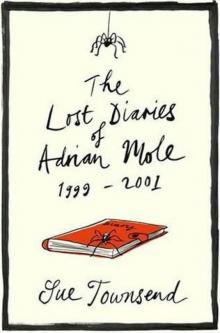 Adrian Mole 07; The Lost Diaries 1999-2001
Adrian Mole 07; The Lost Diaries 1999-2001 The Growing Pains of Adrian Mole
The Growing Pains of Adrian Mole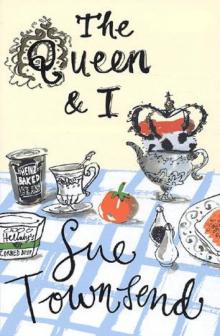 The Queen and I
The Queen and I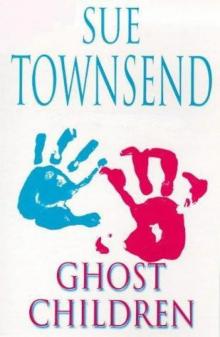 Ghost Children
Ghost Children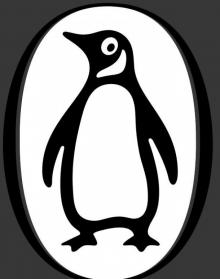 Adrian Mole and the Weapons of Mass Destruction
Adrian Mole and the Weapons of Mass Destruction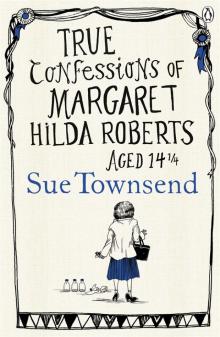 True Confessions of Margaret Hilda Roberts Aged 14 ¼
True Confessions of Margaret Hilda Roberts Aged 14 ¼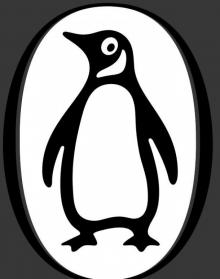 Adrian Mole: The Cappuccino Years
Adrian Mole: The Cappuccino Years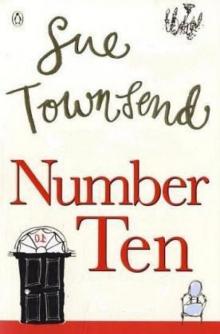 Number 10
Number 10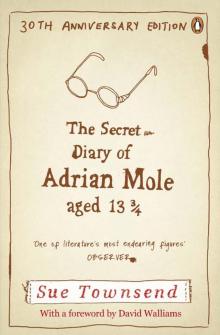 The Secret Diary of Adrian Mole, Aged 13 3/4
The Secret Diary of Adrian Mole, Aged 13 3/4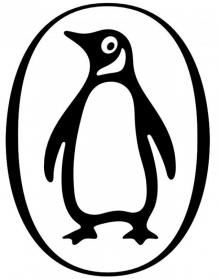 True Confessions of Adrian Albert Mole
True Confessions of Adrian Albert Mole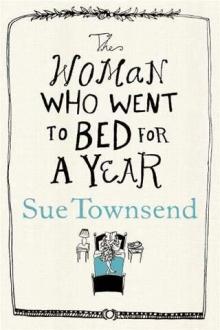 The Woman Who Went to Bed for a Year
The Woman Who Went to Bed for a Year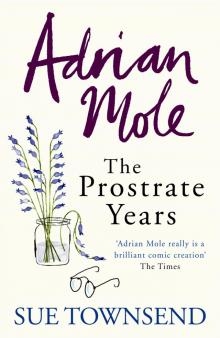 Adrian Mole: The Prostrate Years
Adrian Mole: The Prostrate Years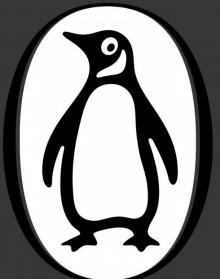 Adrian Mole: The Wilderness Years
Adrian Mole: The Wilderness Years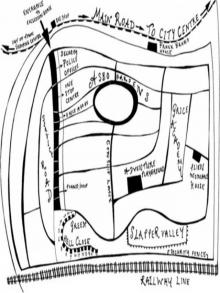 Queen Camilla
Queen Camilla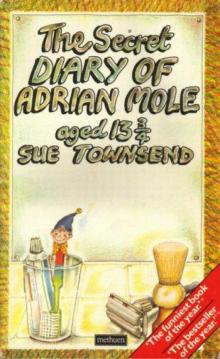 The Secret Diary of Adrian Mole, Aged 13 3⁄4 am-1
The Secret Diary of Adrian Mole, Aged 13 3⁄4 am-1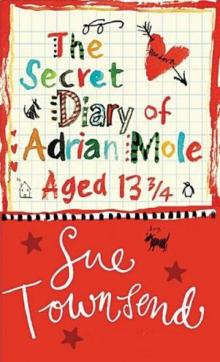 The Secret Diary of Adrian Mole, Aged 13¾ (1982)
The Secret Diary of Adrian Mole, Aged 13¾ (1982)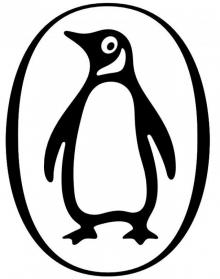 The True Confessions of Adrian Mole, Margaret Hilda Roberts and Susan Lilian Townsend
The True Confessions of Adrian Mole, Margaret Hilda Roberts and Susan Lilian Townsend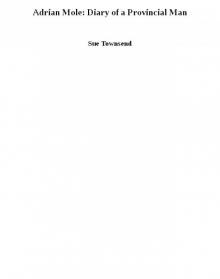 Adrian Mole: Diary of a Provincial Man
Adrian Mole: Diary of a Provincial Man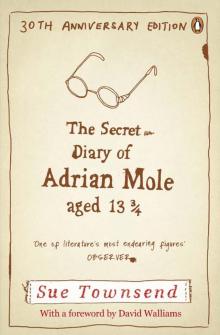 The Secret Diary of Adrian Mole Aged 13 3/4 (Adrian Mole 1)
The Secret Diary of Adrian Mole Aged 13 3/4 (Adrian Mole 1)